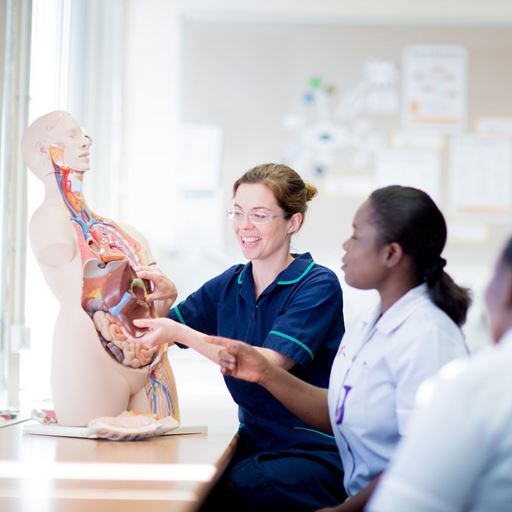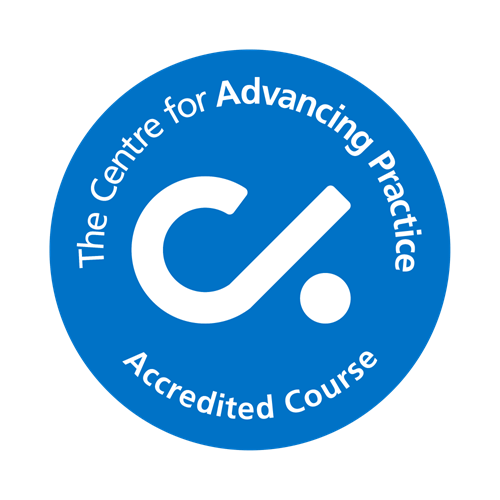About the course and qualification
Impatient to progress your career? Join us as Speech and Language Therapy apprentice at our Colchester Campus. Successful completion of this apprenticeship leads to eligibility to apply for registration with the Health and Care Professions Council as a qualified Speech and Language Therapist. Graduates will also be eligible to become a Newly Qualified member of the Royal College of Speech and Language Therapists.
There are no tuition fees to pay as your employer pays these for you. This means you will earn while you learn. Apprenticeships offer an exciting route to qualification and are very much a partnership between employer, University, and apprentice.
Employers can make their nominations by contacting apprenticeships@essex.ac.uk for October 2024 start.
Course content and delivery
University-based teaching will take place two days per week across an extended academic year. The rest of the time apprentices will be in their usual place of work. The exception to this is when apprentices undertake block ‘away’ placements. Block placements will be allocated away from an apprentice’s current workplace.
Teaching days will be scheduled as 8 hours per day. Block placements will be full-time (37.5 hours a week) for the duration of each placement. This includes up to a day of independent study per week to support the placement learning. The Royal College of Speech and Language Therapists require learners to undertake a total of 150 sessions (a session being equivalent to 3.75 hours) during pre-registration training.
Pre-registration Eating, Drinking and Swallowing (EDS) Competencies
The RCSLT have developed pre-registration EDS competencies (2021) in partnership with clinicians and higher education institutions to ensure that all pre-registration SLT apprentices have the same level of competency across the UK. These competencies will become mandatory for all pre-registration SLT apprentices who graduate from 2026 onwards.
The RCSLT pre-registration EDS competencies are embedded into our teaching and placement curriculum. Across your academic programme you will have an opportunity to achieve EDS knowledge and practical competencies. This will be supported through a combination of theory-based lectures, practical workshops, e-learning and clinical placements. EDS observations, supervised EDS assessment and management discussions can occur in a variety of placement locations including hospitals, community services (including visiting people in their own home), care homes, pre-school, schools, special education needs provision, mental health settings, secure settings and adult learning disability settings.
Once you have these pre-registration EDS competencies, you will have an enhanced skills set
Common activities an apprentice and EDS trained Speech and Language Therapist would complete, may include but is not limited to:
- assessing oral movements
- carrying out oral care
- completing infection control procedures including hand washing and decontaminating equipment
- holding babies
- helping to position clients
- assisting and/or feeding clients
- touching the client's face and neck during treatments to determine movements>
- travelling to client's homes
- being part of difficult discussions with clients and carers
- talking to the client and carers about the results of an assessment and future management
You will also find that, should you choose to work abroad once qualified, you will be able to evidence EDS training. This will make it easier to work as a qualified Speech and Language Therapist in countries where the RCSLT have a Mutual Recognition Agreement.
Course modules
| First year |
HS231 - Identification of Developmental Communication Abilities and Difficulties (30 credits) | This module will introduce you to observation and assessment techniques alongside the professional reasoning skills required to make decisions regarding which techniques to use and how to interpret findings. The module will incorporate learning around service users who are likely to present with developmental difficulties of speech, language and communication across the lifespan. |
HS232 - Identification of Acquired Communication Abilities and Difficulties (30 credits) | This module will introduce you to observation and assessment techniques alongside the professional reasoning skills required to make decisions regarding which techniques to use and how to interpret findings. The module will incorporate learning around service users who are likely to present with acquired difficulties of speech language and communication. |
HS233 - Dysphagia (15 credits) | This module will revise and build upon anatomy, physiology and neurology from year 1 of the degree and introduce students to observation, investigation and intervention techniques alongside the professional reasoning skills required to underpin practical management of dysphagia. Aspects of the work will be practical, for example role playing of oro-motor and assessment techniques. |
HS234 - Practice Placement | This module will introduce you to the knowledge, skills and work based learning that will enable you to develop SLT specific professional reasoning skills around the identification and understanding of speech language and communication ability and difficulty across the lifespan, including aspects of multi professional investigation.
|
HS240 - Professional Enquiry
| With a mixture of interactive and practical classroom-based lectures, this module focuses on literature searching, synthesising literature within a critical review and identifying a topic for further professional enquiry. Students will gain practical experience of collecting and handling a variety of data and developing analytical skills to gain an understanding of evidence in its widest sense.
|
| Second Year |
HS331 - Enhancing Communication for People with Developmental and Acquired Communication Difficulties
| This module will build upon your understanding of typical communication from year one of the degree programme and identification of developmental and acquired speech language and communication difficulties in year two of the programme. Models of intervention, ethics, outcomes and management approaches will be introduced, along with extension of professional reasoning skills to include intervention planning for individual's difficulties across the range of the speech and language therapy caseload. There will be an emphasis on transferable skills, problem solving, evidence-based intervention and multi professional working. A biopsychosocial approach will be taken, enabling you to understand intervention for, and impact of, communication difficulties from a range of perspectives.
|
HS340 - Professional Enquiry Proposal
| This module will develop evidence-based practice and research through self-directed learning. This autonomous working method will help to prepare students as pro-active professionals once qualified. Learners will work towards preparing and submitting an in-depth literature review and research proposal or service improvement project proposal.
|
HS332 - Practice Placement
| This module will enable you to develop professional reasoning and management skills in supervised practice across the lifespan in varied contexts.
|
Course structure
The programme is designed to continuously interweave theory and practice. This is reflected in the learning outcomes and assessment strategy for each module.
To ensure balanced learning and relevance for practice, a variety of assessment methods are employed. Apprentices will be assessed through a variety of methods including:
- Verbal and poster presentations
- Practice placement assessment booklets
- Written assignments, including case-study based tasks and a research proposal
Entry requirements
- Relevant foundation degree or equivalent level 5 qualification (A Portfolio of Prior Learning would be subject to the University’s Accreditation of Prior (Experiential) Learning process). For all Foundation Degrees not awarded by the University of Essex, please contact us to check eligibility.
- Current employment within a relevant professional practice setting with agreement from the employer to be supported.
- Evidence of recent study (within the last 5 years)
- English and Maths (For example, GCSE grade A*-C/4-9, or a level 2 functional skills in English and Maths or Level 2 Adult literacy and Adult Numeracy). If you have any other English and Maths qualifications at Level 2 please contact the Apprenticeship Hub at apprenticeships@essex.ac.uk and we can confirm if these are acceptable.
- Alongside academic criteria, applicants need to demonstrate knowledge of the scope of Speech and Language Therapy as a profession, together with effective communication.
- Disclosure and Barring Service (DBS) and Occupational Health clearance with relevant immunisations.
- Applicants must be able to communicate in English to the standard equivalent to level 8 of the International English Language Testing System (IELTS), with no element below 7.5: we may also ask for IELTS wherever this is required. Evidence of a good command of English is a requirement of the Health and Care Professions Standards of Education and Training (standard 8.2.3).
The University of Essex also offers a full-time BSc Speech and Language Therapy course (non-apprenticeship route). For full details, please see the course page.










